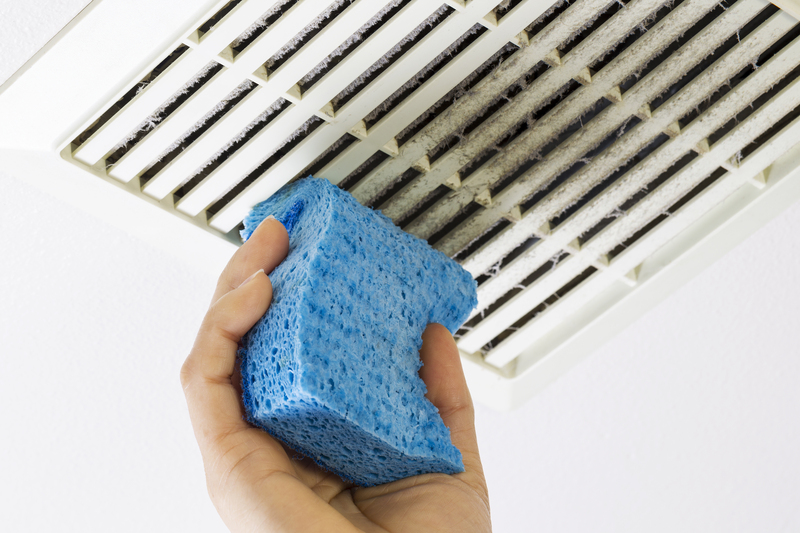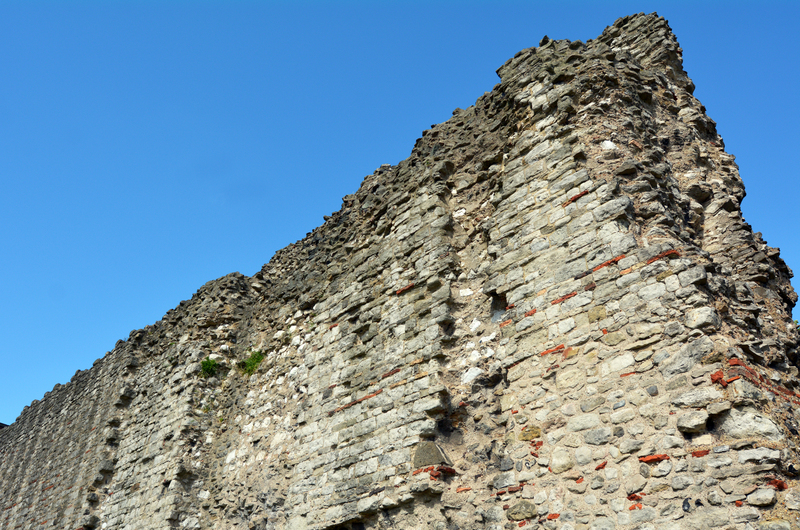Ultimate Guide: End of Tenancy Cleaning for Tenants
Posted on 18/09/2025
Ultimate Guide: End of Tenancy Cleaning for Tenants
End of tenancy cleaning is one of the most important steps when moving out of a rented property. As a tenant, leaving your accommodation spotless plays a crucial role in securing your full deposit and in establishing a good relationship with your landlord or letting agent. In this comprehensive guide, we'll cover everything you need to know about end of lease cleaning, the best practices, checklists, tips, and why professional cleaning services might be your best option. Whether you're renting in the city or the suburbs, this article will equip you with the knowledge and strategies you need to pass your final inspection with flying colors.
What Is End of Tenancy Cleaning?
End of tenancy cleaning, also known as move-out cleaning or exit cleaning, refers to a thorough deep clean of your rental property before you hand the keys back to your landlord or letting agency. The goal is to restore the premises to its original condition (aside from normal wear and tear) as detailed in your tenancy agreement. Fulfilling this step is often a contractual requirement and is essential for retrieving your deposit.
Why Is End of Tenancy Cleaning Important?
- Deposit Recovery: Most disputes between tenants and landlords revolve around the deposit, and cleanliness is a top reason for deductions.
- Legal Compliance: Many tenancy agreements stipulate a specific cleanliness standard upon leaving.
- Positive References: A clean property can help you get positive references for future rentals.
- Courtesy: You'll help the next tenants move in without hassle and maintain the landlord's goodwill.

Understanding the End of Tenancy Cleaning Process
Unlike daily or weekly cleaning, end of lease cleaning requires meticulous attention to detail. Landlords and letting agents often use strict checklists to inspect the property. Missing even minor areas can lead to costly deductions from your deposit.
Should You Clean Yourself or Hire a Professional?
One of the most common questions is whether to carry out the end of tenancy cleaning yourself or to hire a professional service. Here's how to decide:
- Time Constraints: Cleaning an entire property can take several hours, if not days. If you have limited time, professionals can help.
- Quality: Professional cleaners guarantee a certain standard and often use specialized equipment.
- Landlord Requirements: Some landlords require a professional cleaning receipt.
If you choose to do it yourself, be prepared to invest in high-quality cleaning products and set aside enough time.
Essential End of Tenancy Cleaning Checklist
To make the process more manageable, we've created a step-by-step checklist by room. Follow this guide to ensure nothing is missed:
General Areas (All Rooms)
- Dust and wipe all surfaces, including skirting boards, window sills, and shelves.
- Vacuum or mop floors, including carpets, laminate, or tiles.
- Clean doors, handles, and light switches.
- Wash windows inside and remove any fingerprints or smudges.
- Remove cobwebs from ceilings and corners.
- Empty and clean wardrobes, drawers, and cupboards.
- Remove all personal belongings and ensure rubbish is disposed of.
Kitchen
- Oven: Deep clean inside and out, including racks and trays. (One of the most checked appliances!)
- Fridge & Freezer: Empty, defrost, and clean thoroughly. Don't forget shelves and seals.
- Microwave: Clean inside and outside, including turntable.
- Cupboards & Drawers: Clean inside, remove crumbs, and wipe doors.
- Sink & Taps: Remove limescale and polish taps.
- Worktops: Wipe down and disinfect all surfaces.
- Floors: Wash and ensure corners are free from grease.
- Extractor Fans: Clean filters and outer surfaces.
- Dispose of all rubbish and expired food items.
Bathrooms
- Toilet: Scrub inside and out, including hidden areas at the base.
- Sink & Taps: Remove limescale, polish, and disinfect.
- Bath & Shower: Clean tiles, grout, shower screen, and remove mold or mildew.
- Mirrors & Fixtures: Polish all reflective surfaces.
- Floor: Mop and disinfect thoroughly.
- Clean and de-scale any chrome fittings.
Bedrooms
- Dust and wipe all surfaces, including bedside tables, shelves, and wardrobes.
- Clean inside wardrobes and drawers.
- Vacuum carpets or mop floors, beneath the bed included.
- Remove cobwebs and spot-clean any marks on walls.
Living Room & Common Areas
- Dust furniture, electronics, and light fittings.
- Vacuum sofas (check manufacturer's instructions first).
- Spot-clean upholstery if needed.
- Clean windows, including sills and tracks.
- Polish any wood surfaces.
Outdoor Areas (if applicable)
- Sweep patios, balconies, and porches.
- Remove rubbish and debris from gardens.
- Ensure bins are empty and clean.
Top Tips for a Stress-Free End of Tenancy Cleaning
No one wants the added stress of a failed inspection or deposit deduction. Here are top tips to make move-out cleaning more manageable:
- Plan Ahead: Book your cleaning in advance to avoid last-minute rush.
- Use the Inventory: Check the initial inventory report so you know the property's original condition and focus areas.
- Start Early: Even if the property seems clean, give yourself at least a few days to do a deep clean.
- Don't Overlook Appliances: Pay special attention to the oven, fridge, washing machine, and other seldom-cleaned appliances.
- Don't Forget the Details: Light switches, plug sockets, and baseboards are often neglected and can cause issues during inspections.
- Document Your Work: Take dated photos of the cleaned property to prevent disputes after you leave.
- Check for Repairs: Replace burnt-out light bulbs, fix minor damages, and ensure everything works as it should.
Common Mistakes to Avoid During End of Tenancy Cleaning
Many tenants lose part of their deposit because of simple oversights or misunderstandings. Here are the most common mistakes and how to avoid them:
- Rushing the Cleaning: Incomplete work leads to deductions.
- Ignoring the Small Stuff: Areas behind appliances, under the bed, and inside cupboards matter.
- Using the Wrong Products: Some surfaces need delicate care--always check manufacturer's advice.
- Failing to Check Landlord's Checklist: Every landlord or agency might have slightly different standards.
- Not Documenting the Property: Proof of your cleaning efforts can protect your deposit.
Benefits of Hiring a Professional End of Tenancy Cleaning Service
Sometimes, the best way to meet the required cleaning standards is to bring in the pros. There are several advantages to using a professional end of tenancy cleaning company:
- Guaranteed Standards: Professional cleaners use a comprehensive checklist and provide a guarantee of quality.
- Time-Saving: Allows you to focus on other aspects of your move.
- Specialized Equipment: Access to industrial cleaning machines for carpets, ovens, and upholstery.
- Invoice Provided: Many landlords require a professional cleaning receipt to return your deposit.
- Peace of Mind: They know what inspectors look for!
Remember to choose a reputable company and confirm their experience with end of tenancy cleaning.
What Does a Professional End of Lease Cleaning Include?
- Full property deep-clean to inventory standards
- Oven and appliance cleaning
- Carpet and upholstery steam cleaning (often as an extra)
- Window washing (inside and sometimes outside)
- Guaranteed re-clean if the inspection fails (offered by top companies)
How Much Does End of Tenancy Cleaning Cost?
The cost depends on the property's size, location, and scope of cleaning required. On average:
- Studio/One-bedroom flat: ?90-?150
- Two-bedroom property: ?150-?220
- Three/four-bedroom house: ?220-?350+
Additional services (steam cleaning, appliance cleaning, outdoor areas) may increase the price.
End of Tenancy Cleaning FAQ
1. Is end of tenancy cleaning mandatory?
In most cases, yes. Your tenancy agreement will state your responsibilities regarding the return condition of the property. Landlords expect it to be as clean as when you moved in.
2. Do I have to use a professional cleaning service?
No, unless specified in your tenancy agreement. However, if you choose to clean yourself, the results must match the professional standard, or you risk deductions.
3. What if the landlord isn't satisfied with my cleaning?
If there's a dispute, the letting agent or landlord will withhold some or all of your deposit. You may be given a chance to re-clean, or they may hire professionals with the bill deducted from your deposit.
4. How long does end of tenancy cleaning take?
It depends on the property size and condition. Cleaners typically need 3-8 hours. DIY cleaning could take longer, especially if you're unfamiliar with deep-cleaning standards.

Summary: Key Takeaways for Tenants
- Always read your tenancy agreement and refer to the check-in inventory.
- Clean every corner, including "invisible" spots such as behind furniture and inside appliances.
- Plan, prepare and document--proof of cleaning is valuable in disputes.
- Consider professionals if you want to save time or guarantee standards.
Conclusion: Secure Your Deposit with Spotless Cleaning!
Moving house can be stressful, but end of tenancy cleaning doesn't have to be. By following our ultimate guide to end of lease cleaning, you'll protect your deposit, satisfy your landlord, and leave your old home in perfect condition for its new occupants. Whether you take the DIY route or hire experts, meticulous attention to cleanliness is the golden rule. Happy moving!
Looking for Professional Help?
If you're short of time or want guaranteed results, consider hiring a reputable end of tenancy cleaning company. Compare quotes, read reviews, and ensure the service matches your landlord's requirements. A little investment now can save you money and stress down the line.
Latest Posts
The Art of Repurposing Old Pots and Pans
Creating Healthier Indoor Environments through Better Air Quality
Optimize Your Wardrobe Space: Brilliant Solutions for Small Closets
Eye-Catching Shine: Ultimate Jewellery Cleaning Methods
Transform Your Stovetop with Expert Tips on Burnt Residue Removal





